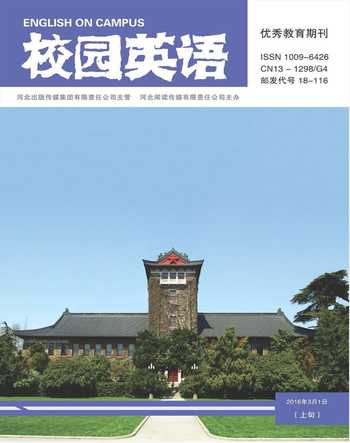Contrastive analysis of politeness between Chinese and western in cross—cultural communication
【Abstract】This paper is a contrastive study on politeness principles and politeness strategies between western and Chinese which plays an important role in establishing and maintaining social harmony. This thesis aims to discuss the cultural differences between western and Chinese which will enhance our intercultural awareness and communicative competence.
【Key words】Politeness; Western; Chinese; Culture; Difference
1. Introduction
Politeness as a social phenomenon can be observed in all languages and cultures. The two most influential theories are Brown and Levison's Face Theory and Leech's politeness principle. The most worth-mentioning figure in this field is Gu Yueguo. He puts forward his own set of Politeness Maxims in his “politeness Phenomena in Modern Chinese”(1990).
2. the differences of politeness between Chinese and Western culture
With the effects of Chinese and Western culture, their politeness are universal, but they have their own unique characteristics. Universality refers people from different cultural backgrounds try to become more politely communication.
2.1 contrastive analysis of Chinese and western greetings in cross-cultural communication
Greeting is an important sign to judge a person's politeness. When Chinese want to talk, they habitually use some greetings or gestures but sometimes westerners can think whether there is implied meaning in these statements. For example, you say hello with a foreigner or do you have dinner? While foreigner will think you want to invite him to have dinner.
2.2 contrastive analysis of Chinese and western compliments in cross-cultural communication
Some foreign scholars believe compliment creates harmonious atmosphere. In western countries, it can give a good impression to leaders who give subordinates some encouragements which can equal to their hard work while Chinese are used to obey the collective principle and often give a negative answer when they got a praise, but “no” that is not denying others praise but just want to show a humble attitude.
3. the root reason between western and Chinese Polite Language in cross cultural communication
3.1 the differences in values
In China, Collectivism culture emphasizes collective consciousness and identity so individual should obey the values of the collective. Chinese concern the needs of the collective beyond individual's needs while westerners concern the value of individual which emphasizes protect personal privacy and private property.
3.2 the differences in thinking patterns
There are deep link between the thinking patterns and different cultures. The differences in thinking patterns often lead to misunderstandings and conflicts on intercultural communication. Westerners is approximate to the linear model because they express their thoughts directly while Chinese always try to avoid direct conflict so they think something by a moderate way because of the influence of Confucianism.
4. Conclusion
Politeness is an indispensable element on human communication. The success or failure of communication depends on the understanding and use of appropriate polite behaviors. The contrastive study introduces different politeness principles between western and Chinese. In conclusion, this thesis aims to give the reader a better understanding of politeness in western and Chinese and contribute to enjoying successful and effective cross-cultural communication and foreign language teaching and leaning.
References:
[1]Bonvillain.N.(1993).Language culture and communication:the meaning of messages[M].New Jersey:Prentice Hall.
[2]Leech,G.(1983).Principles of Pragmatics[M].London: Longman.
[3]Mao,L.M.R.(1994).Beyond Politeness[J].Journal of Pragmatics.
[4]Streep,P.(1995).Confucius:The Wisdom[M].Boston:Bullfinch.
[5]顧曰国.礼貌、语用与文化[J].外语教学与研究,1992.
[6]吴为善.跨文化交际概论[M].北京:商务印书馆,2010.
作者简介:汪荟瑾(1991.07-),女,重庆沙坪坝人,重庆师范大学,2014级学术型硕士,研究方向:英语教学理论及应用。
- 校园英语·上旬的其它文章
- 《简爱》中的“火”意象
- On the Tragedy of Miss Brill in Katherine Mansfield’s Miss Brill From the Perspective of Contrast
- The Disillusion of American Dream in Sister Carrie
- 《玫瑰园中的影子》的“玫瑰”意象及对话分析
- 言说者文本视角下看内勒的《戴妈妈》
- Discussing the Application of Amplification andOmissionin Company Profiles Translation from Chinese to English

